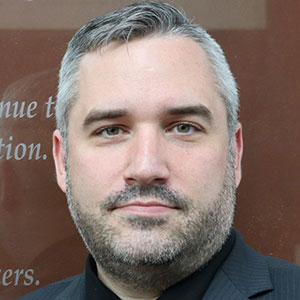
Self-forgiveness is key to mental well-being
By Bill Howatt and Troy Winters
EDITOR’S NOTE: ‘Psychologically Safe Leadership: Strategies for facilitating mental health in the workplace’ is a monthly series, in partnership with Dr. Bill Howatt of Howatt HR Consulting and Troy Winters of CUPE in Ottawa. This series takes on the best practices for work leaders to create a psychologically safe environment.
Leaders who practice the leadership skill of self-forgiveness with their team intentionally set the example that allow their workers to learn without fear of reprisal for mistakes. However, it may be easier for some leaders to learn how to forgive others than to forgive themselves for mistakes. Why? The faulty belief that leaders should never make mistakes is an unrealistic expectation because no one is perfect.
“Discovering self-forgiveness provides the space to forgiving others.” – Dr. Bill Howatt
Not forgiving themselves can negatively impact leaders’ ability to be psychologically safe – and how leaders behave matters. Leaders who cannot cope well when making mistakes are likely to react negatively. They tend to experience unpleasant emotions like shame, humiliation, or guilt. When not regulated, these emotions can result in leaders dwelling on their mistakes, which shows as anxiety intense enough to impact their decision-making skills negatively. The impact can negatively influence leaders’ emotional state of how they show up for themselves and their workers.
Self-forgiveness is a learned skill that requires acceptance of its benefit and practice
The Handbook of the Psychology of Self-Forgiveness suggests that self-forgiveness is a trainable skill. One study found that some may resist practicing self-forgiveness as a copout or excuse for poor performance. The first step for a leader is to accept they will never be perfect, and making mistakes is a part of being human. Accepting that mistakes happen and forgiveness not as an excuse but as an opportunity to learn allows leaders to develop the skill of self-forgiveness.
The practice of self-forgiveness is not easy for all leaders. It is a skill that requires objective self-reflection that does not simply excuse mistakes but allows leaders to own them, take accountability for them, and learn from them.
Leaders’ growth is diminished when they engage in less-productive thinking like:
- My actions or behaviours were excusable or acceptable because of the situation or my position within the organization.
- The event was the fault of or was caused by someone else’s actions.
- The action was insignificant because it was harmless or not so bad that I won’t worry about it anymore.
Leaders cannot control what emotions pop up. With awareness, they can learn how to control their response and actions. Why a leader makes a mistake may not be as important as how they respond. An excellent start is owning a mistake, being accountable, and practicing self-forgiveness, allowing them to move forward and learn from the error.
“Everyone makes mistakes. We need to use these events as a chance to become better – and that starts with self-forgiveness.” –Troy Winters, CRSP
Three main processes to self-forgiveness
The Handbook of the Psychology of Self-Forgiveness suggests three main components of self-forgiveness that we adapted for this article:
- Releasing negative emotions directed at oneself. Engaging in self-forgiveness involves meaningfully interpreting and successfully resolving negative emotions directed inward. This does not mean just letting go of the emotions as described above, but rather the conscious and reflective experience of negative self-emotions like shame or guilt. This creates an opportunity to repair any harm the mistake has created. If the negative emotions are not released, they can become habitual and increase leaders’ stress levels and risk of mental harm that prevents self-forgiveness. Accepting and acknowledging that negative emotions like guilt and shame are valid feelings, not anchors, can be reframed as opportunities to own mistakes and repair relationships, allowing for personal growth.
- Self-forgiveness entails fostering positive emotions directed toward oneself. Learning how to release negative self-emotions allows leaders to increase positive emotions such as self-compassion, generosity, and love (or at least acceptance) that promote self-confidence and growth. Releasing negative self-emotions, allows the space for healthy emotions, and supports leaders to be more supportive, and positively impacts how they show up each day.
- Self-forgiveness involves an appraisal of responsibility. Self-forgiveness doesn’t occur without a reflection, appraisal, and acceptance of responsibility for a mistake and the damage it may have done to others. Understanding and acknowledging harm creates the mindset to explore the appropriate atonement to fix the mistake. The goal is to improve not only how a leader feels but also anyone who was negatively impacted.
Regardless of the size of a mistake, leaders should be aware that negative emotions are signs they do not control. Leaders’ self-talk defines what they do with their negative feelings regarding response and action. Leaders need to learn that mistakes happen. They will make many, and as inconvenient as they are, they are excellent opportunities to grow and learn.
 Dr. Bill Howatt is the Ottawa-based president of Howatt HR Consulting.
Dr. Bill Howatt is the Ottawa-based president of Howatt HR Consulting.

Troy Winters is a senior health and safety officer at the Canadian Union of Public Employees (CUPE) in Ottawa.
